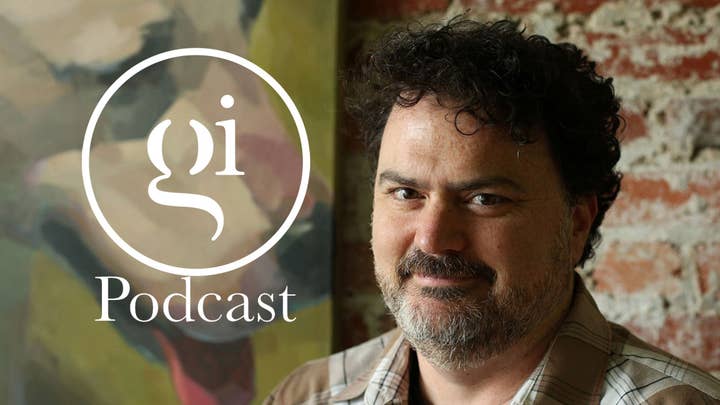The Five Games of Tim Schafer | Podcast
Our special series returns with the Double Fine leader discussing '90s adventure games, early 3D graphics and changes to comedy in games writing
Our special podcast series The Five Games Of returns with Tim Schafer, founder, CEO and president of Double Fine Productions. And the episode is available to download now.
For those who may have missed past episodes, this is a series of interviews in which we explore five games from our guest's careers – their first, their latest, and three of their choice – as well as how the industry changed in the years between.
In this episode, Schafer shares how he came to work at LucasFilm Games, the evolution of the adventure genre that the studio was best known for, the transition to early 3D graphics, the complexities of music licensing, and the changing attitudes towards comedy in games.
You can listen to the episode in the player below or download the file directly here – and scroll down for some of the episode's highlights.
Sign up for the GI Daily here to get the biggest news straight to your inbox
The five games of Tim Schafer
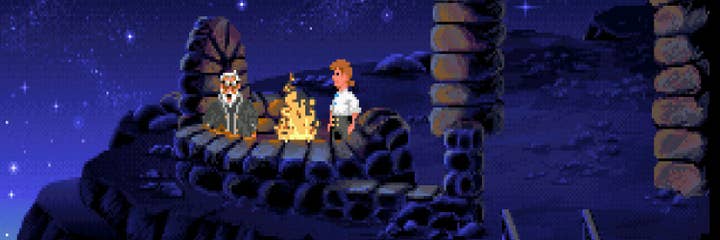
The Secret of Monkey Island
Schafer describes working on the original Monkey Island as "the job of a lifetime," where he spent years writing the scripts alongside series creators Ron Gilbert and Dave Grossman. Looking back on how that project came to be, he remarks at how differently the parent company approached video games.
"There was a very specific place and time and context for that game. We were at LucasFilm, which was a very well-funded institution, riding high on that space money – but we were prohibited from making Star Wars games or any licensed games because someone else had the rights. So they said, 'here's a bunch of money but you're going to have to make it up from scratch.' It led to what I think of as a golden age of creativity there, because we made up all this games: Monkey Island, Day of the Tentacle, Full Throttle. It was a really interesting bubble to be in."

Full Throttle
For his first title as project leader, Schafer turned to a pitch he drew up based on a friend's experience going to a biker bar. "They were talking about all these bikers like Big Rick and Smiling Phil, and it just sounded like a different kind of pirates to me," he says.
It also gave him the chance to create a hero that was very different from those of previous LucasArts titles: "So far, most of our heroes had been these loveable losers, nerds that you identify with and they mess up but they win the day in the end. These games were for people who liked laughing at themselves or didn't take themselves too seriously, but what about if someone wants to be a character that's cooler than them? Someone that knows how to ride a motorcycle, might kick a door down, be this badass? That seemed to convince [management] to take a chance on this biker game."
Full Throttle was a big hit, and "sold more than any adventure game I worked on" while at LucasArts, Schafer says.
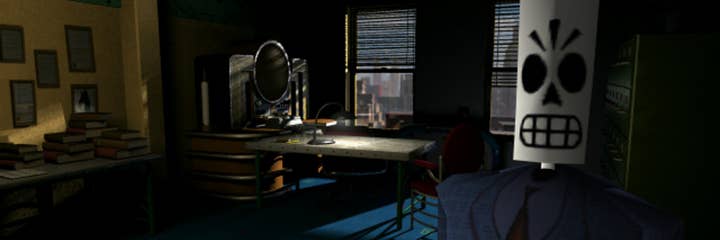
Grim Fandango
Despite the pressure to do a Full Throttle sequel, Schafer felt like the game's success had given him "some clout" at the studio and wanted to explore his fascination with the Day of the Dead festival and its depiction of skeletons in everyday roles. Combined with his interest in film noir and crime novels, the result was Grim Fandango – the studio's first 3D game.
"This was a little bit bowing to market pressure. Everyone was doing 3D, but at Lucas we were this very stylised 2D company. The look of Day of the Tentacle, Sam and Max and Monkey Island was a very stylised, 2D painted look, which we liked. To me, 3D at the time just looked like someone had silkscreened something like pantyhose and dragged it over a cardboard box. In general, it looked terrible.
"But when I looked at the folk art for these skeletons, they didn't model every bone for the skeleton, they would just make a lump for the body and paint the bones on the outside. I was like, '3D can do that. This folk art style could look really good in 3D – it would at least look like we're doing it on purpose!'"
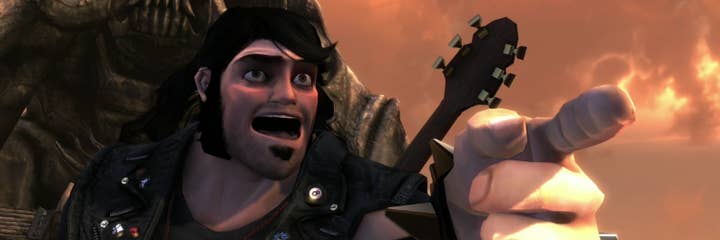
Brütal Legend
Fast forward a decade, and Schafer was at the head of his own studio Double Fine. One of the early games the team developed was Brütal Legend – which Schafer describes as an attempt to "outdo [big name fantasy RPGs] and making the most outlandish metal fantasy game we could." And they did.
"I feel incredibly lucky that I got to make this game. I grew up loving heavy metal, and I always thought there was a connection between heavy metal and video games. So many heavy metal fans play video games, the publishers use a lot of heavy metal in their trailers – even though that song is not in the game, the soundtrack is all symphonic. I thought we should just give people what they need, this metal injection.
"We went through a few publishers, we often do. Sometimes a game will outlast a regime at the company, a new regime comes in and you've got to find a new partner. But EA really got behind the game and helped us out with the music licensing."
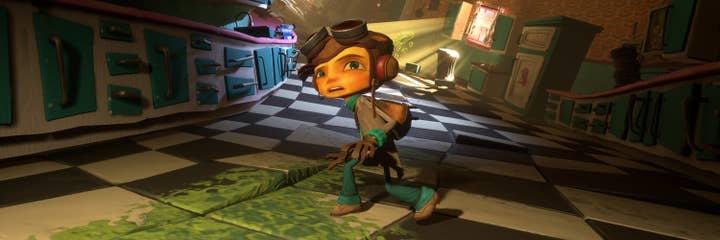
Psychonauts 2
Finally, we discussed last year's Psychonauts 2, the long-awaited sequel to Double Fine's debut title. Much changed in the games industry between the two launches – including the rise of crowdfunding which helped enable Schafer to get Psychonauts 2 started – but also the sensitivity around mental health and other aspects that the series has carefully built its humour on.
"Society in general has become more aware of people who are different. In years past, a lot of people lived in this bubble where you just thought about what you thought was funny, and everyone's just like you so if it doesn't bother you then it shouldn't bother anyone else. But as a society, we think a lot more about empathy. There's a lot of people whose lives are not like ours so what would it be like for them to play our game?
"This gets into accessibility, diversity and inclusion, and definitely mental health. You could do something that would be really stigmatising and actually hurt people if you don't think about these things. In our case, we were lucky enough that Microsoft was in touch with different types of consultants who could check it out. We had good intentions and we'd done some research but getting organisations such as Take This to play the game and help us with the blind spots… that's something every work of art needs to do now.
"Some people might bemoan that, go 'Can't we just have fun and not think about these things?' And you can if you don't care about how what you're making affects people, but why would you want to do that?"
The GamesIndustry.biz Podcast is available via Spotify, iTunes, Google Play, Stitcher, Overcast, Player FM, TuneIn and other widely-used podcast platforms, or you can subscribe via our RSS feed.
Title music by Julian Villereal. Episode produced by Alix Attenborough and James Batchelor.
If you enjoy this episode, be sure to check out our previous The Five Games Of interviews with:
